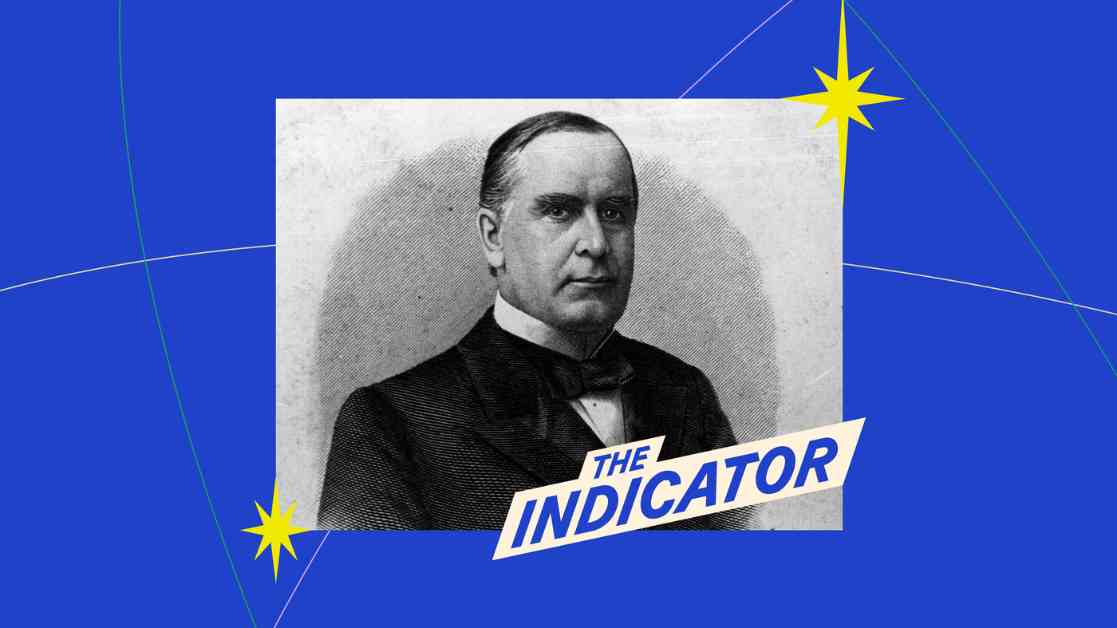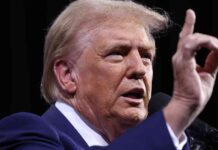President Trump has often expressed admiration for William McKinley, the 25th U.S. president known for his staunch support of tariffs. McKinley’s efforts to protect the tinplate industry in the late 19th century have sparked debates on the effectiveness of tariffs in boosting the economy. In this article, we delve into McKinley’s tinplate tariff and its impact on the economy, shedding light on whether the benefits outweigh the costs.
McKinley’s Tariff Legacy
William McKinley’s advocacy for tariffs as a means of shielding American industries from foreign competition was a cornerstone of his presidency. He believed that imposing tariffs on imported goods would not only safeguard domestic businesses but also foster economic growth. One of McKinley’s notable tariff policies was aimed at bolstering the tinplate industry, a vital sector in the late 1800s.
During McKinley’s tenure, the tinplate industry faced intense competition from foreign producers, particularly those in Europe. To safeguard American tinplate manufacturers, McKinley implemented a tariff that imposed taxes on imported tinplate, making it more expensive for foreign competitors to flood the U.S. market with their goods. This move was lauded by proponents of protectionism, who argued that tariffs were essential for preserving American jobs and industries.
However, the efficacy of McKinley’s tinplate tariff remains a subject of debate among economists and policymakers. While some view it as a necessary measure to shield domestic industries from external pressures, others criticize it for potentially escalating trade tensions and hindering global commerce. The long-term consequences of McKinley’s tariff policy continue to resonate in contemporary discussions on trade and economic policy.
Implications for the Modern Economy
The debate surrounding McKinley’s tinplate tariff offers valuable insights into the broader implications of tariffs on the modern economy. In an era marked by globalization and interconnected markets, the impact of tariffs extends far beyond domestic industries, influencing international trade relations and economic stability.
Proponents of tariffs argue that these measures protect domestic producers from unfair competition and support national interests. They contend that tariffs are essential for safeguarding critical industries, promoting self-reliance, and reducing reliance on foreign imports. However, critics warn that tariffs can lead to retaliatory measures from trading partners, disrupt supply chains, and raise prices for consumers.
As the global economy becomes increasingly integrated, the consequences of protectionist policies, such as tariffs, reverberate across borders, affecting businesses, consumers, and governments worldwide. The delicate balance between protecting domestic industries and fostering international trade cooperation remains a central challenge for policymakers grappling with the complexities of modern economic dynamics.
In conclusion, McKinley’s tinplate tariff serves as a historical lens through which we can examine the intricate interplay between protectionism, trade policy, and economic development. By exploring the legacy of past tariff initiatives, we gain valuable insights into the ongoing debates surrounding tariffs and their impact on the economy. As policymakers navigate the complexities of trade relations in the 21st century, the lessons of history offer a nuanced perspective on the challenges and opportunities inherent in shaping a sustainable and prosperous global economy.
For sponsor-free episodes of The Indicator from Planet Money, subscribe to Planet Money+ via Apple Podcasts or at plus.npr.org. Fact-checking by Sierra Juarez. Music by Drop Electric. Find us: TikTok, Instagram, Facebook, Newsletter.






















